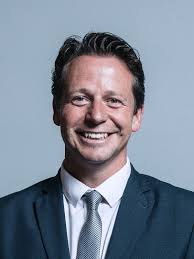The statement made by Nigel Huddleston, the Parliamentary Under-Secretary of State for Digital, Culture, Media and Sport, in the House of Commons on 25 April 2022.
I wish to inform the House that the Government have today published their response to the recommendations made by the Independent Fan Led Review of Football Governance.
The Government’s response focuses on responding to the review’s 10 strategic recommendations. We accept or support all of the 10 strategic recommendations in our response, which sets out the Government’s planned reform of football. The sum total of our plans amount to significant reform with an independent regulator focused on financial sustainability, and a strengthened approach to ownership of football clubs and their governance.
The Government build on the case for reform set out in the review. We believe that there are two key problems in English football. First, there is significant risk of financial failure among clubs, and secondly, the cultural heritage of English football is at risk of harm. We have identified that these two problems have three root causes: the structure and dynamics of the market create incentives for financial overreach, inadequate corporate governance often affords unchecked decision-making power, and the existing regulation is ineffective. Without reform these financial failures will persist, and the economic and social costs would be substantial. Therefore, the Government believe that there is a need to intervene in football to secure the future of the game.
The issues highlighted in the review are complex and our reforms need detailed and considered analysis to ensure the sustainability of the sector long term. As a result, we have committed to publishing a White Paper in the summer which will set out further details on the implementation of reform.
In response to the strategic recommendations, the Government response sets out a vision for the reform of English football:
An independent regulator for football will be established. The response sets out the proposed objective, scope and powers of the regulator, and that it would oversee a licensing regime of the top five leagues.
The regulator will have a focus on financial regulation. The financial regulation regime will take a holistic approach, bringing together the Owners’ and Directors’ test, corporate governance and equality, and diversity and inclusion as part of one regime.
The current Owners’ and Directors’ tests do not go far enough in assessing suitability for ownership of clubs. The response sets out that the tests should be strengthened by enhancing due diligence to check source of funds and the strength of business and financial plans, and that an integrity-style test will be introduced. The forthcoming White Paper will provide further details on how the enhanced tests will work, and what will be in scope of the integrity test.
We believe that football needs a new approach to corporate governance, proposing a new model to be designed and overseen by the regulator. Football also needs to take further action on diversity and inclusion through their own plans for action. Further consideration will be given to ensure the model is proportionate and appropriate for football.
We agree with the review that supporters should be properly consulted by clubs, but we propose to share details in the White Paper on a more flexible approach to supporter engagement by making a minimum level of fan engagement a condition of the regulator licence. We have also committed to share details in the White Paper on the regulator implementing a licence condition which requires clubs to have a mechanism for fans to consent to changes to key items of club heritage.
On financial distributions in the football pyramid, we agree that more could be done by the Premier League to enhance financial flows through the wider football pyramid, and ideally this would be through a football-led solution. We have committed to revisit whether backstop powers are needed for the regulator to implement a new distribution agreement, if a solution is not found before the White Paper.
We agree with the review on the importance of football clubs to local communities, and set out that the position on “existing provisions”—which applies to football stadiums—in the national planning policy framework will be retained in the revised NPPF, in conjunction with Department for Levelling Up, Housing and Communities colleagues.
Finally, in response to the review’s recommendations regarding alcohol and football, we are committing to review the Sporting Events (Control of Alcohol etc.) Act 1985, in conjunction with Home Office colleagues.
The Government are fully committed to reforming football governance to enable a long-term, sustainable future for the game. Accepting or supporting all the strategic recommendations in the review is the next step to doing exactly this, and will represent a wholesale change in the way football is governed in England.
We recognise the scale of change that is required, and the impact that our proposals will have within football and more broadly. That is why we are setting a strategic direction in reforming football for the better, but taking some time to consider the details of exactly how we will enact these changes. We will set out even more information on the precise implementation of our reforms in a White Paper which we will publish this summer, and are committing to implementing the reforms as soon as possible.
